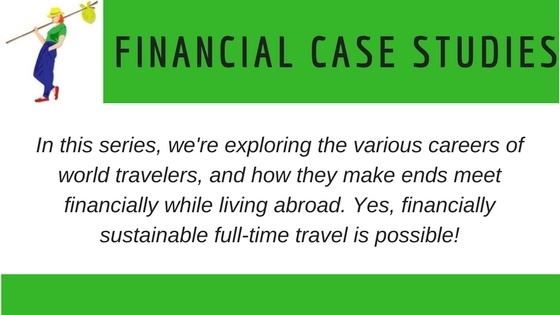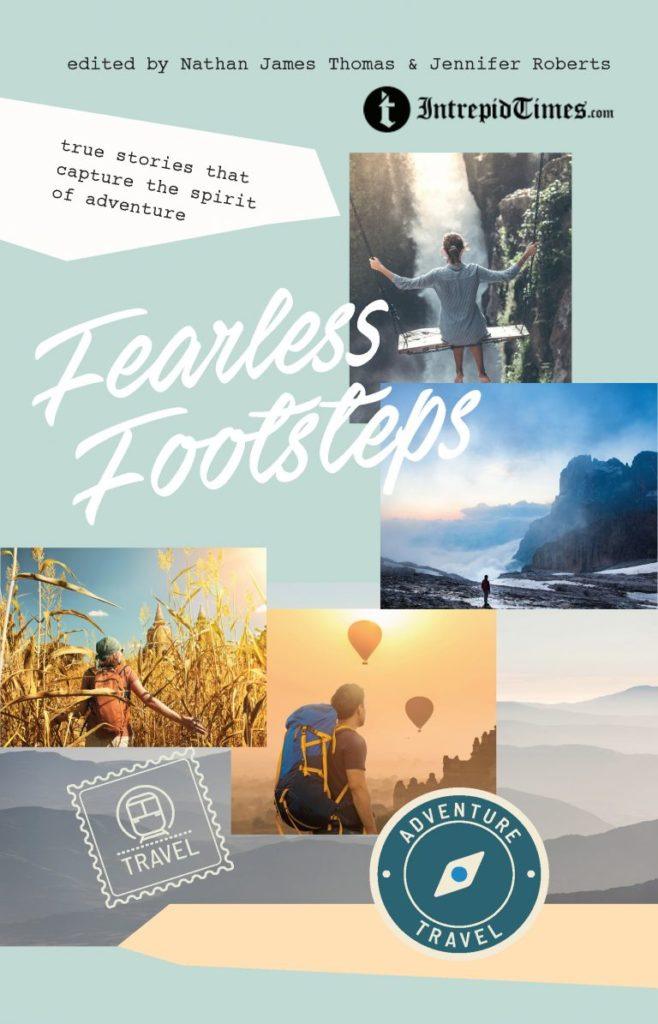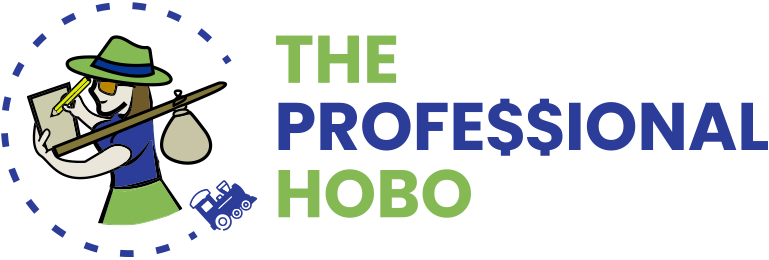Nathan James Thomas founded Intrepid Times in 2014 as a vehicle for sharing stories from the road and as an excuse to meet and interview his favourite writers. It has since grown into a popular home for travel writing with heart, attracting hundreds of contributors and thousands of readers from around the world. Nathan’s own travel writing has been published in places like Roads and Kingdoms, Outpost Magazine, and New Zealand Memories, and his work as a ghostwriter has been featured in Forbes, the Huffington Post, and the Harvard Business Review. Originally from New Zealand, Nathan lived in China for two years and is currently in Eastern Europe.
Please enjoy this Financial Case Study of Nathan James Thomas, examining his lifestyle of living and traveling abroad while managing Intrepid Times and doing various freelance writing gigs.

How long have you been living/working on the road, and where have you traveled to?
I finished University at the end of 2013 and was out of New Zealand like a cork from a bottle of over shaken Prosecco. First stop was Chengdu, in China’s Sichuan province. I lived there for about six months, making an honest effort to learn the language. I returned to China to live in Shanghai throughout much of 2016, but apart from that have mostly been “based” in Europe, spending the most time in Poland, followed by Hungary, Spain and, most recently, Albania. I return to New Zealand every year for as long as I can manage, although this year that has been made a little difficult.
Please describe what you do for income.
Somewhere between copywriter and consultant. I work very closely with a handful of clients to help them better reach their goals and communicate with their audience. This involves everything from writing email sequences to ghostwriting entire books.
When I first started out freelancing about five years ago I pitched myself purely as a copywriter – I had some business experience from running a small online startup while I was at university, and writing has always been my passion and core skill set, so combining the two seemed like the logical way to make a living on the road. Since then I’ve built strong relationships with clients and come to understand more about their business and customers, so now tend to be involved as much as a consultant as anything else, discussing marketing strategy and taking part in a lot of brainstorming sessions, which is quite rewarding.
My passion project is the narrative travel writing website I edit, Intrepid Times. This has historically been a money loser because we have a policy of paying all our contributors with money that has mostly come out of my own pocket, but we’ve recently started generating some income through our “Private Writer’s Club” where we coach aspiring travel writers.
We’ve also produced a book in partnership with Exisle Publishing, Fearless Footsteps, True Stories That Capture the Spirit of Adventure. While we won’t make any real money from this directly, it’s being published around the world by an established publishing house and so it should bring a bit of attention to Intrepid Times, which may lead to more club members!

How many hours per week do you work on average?
Too many! The alarm goes off in the morning, I chug a few litres of coffee and then am more or less glued to my laptop until the evening. These days, this probably pretty much describes how most “ordinary” non-tralevers live, as well!
To be honest though, I quite enjoy the grind, especially when I’m working on projects that have meaning to me. When I first left university I’d sold my small business so had enough saved up to not work for about a year, which was great for the first few months, but then started to get weird. A mind turns in on itself when not kept busy and, like a lot of restless, traveler types, I’m happier when I have something to do.
How much money do you make?
At the time of writing, I have four long-term established clients for whom I allocate time for various amounts of writing, consulting and marketing work. The smallest of these four clients (in terms of income for me) pays me a fixed fee of $500 per month. On top of these long-term clients I also write travel articles – mostly guides and informative pieces, as opposed to the narrative stories I publish on my own platform – for places like Thrifty Nomads and International Living. The latter pays up to $400 per article which is a nice bonus when pieces like that come together, of course the amount of this kind of work has taken a hit this year.
Do you make enough money to support your lifestyle?
Yes – provided I spend much of my time in fairly inexpensive places such as Eastern Europe. Fortunately, I love this part of the world anyway! I would really struggle if I had to live on this level of income in somewhere like London or New York, but client work occasionally sends me to those cities anyway for brief periods of time to get my fix of skyscrapers and hotel rooms!

What do you like most about your career and lifestyle?
In both cases, the variety. Nothing terrifies me more than knowing exactly what is going to happen tomorrow. That kind of numbing predictability is death to me. At the time of this interview, I’m in an AirBNB in Poland, waiting for a client in Denmark to let me know where we’re meeting next week for a brainstorming session. Last week I was working on ghostwriting a thriller novel, brainstorming branding proposals for a niche watchmaker, running a publicity campaign for a non-fiction book publisher, and ghostwriting an article for Forbes on emerging trends for tech CEOs.
What are some of the challenges you have with this career and lifestyle?
Because I have always worked from home, from anywhere, and across multiple time zones, I’m pretty awful at switching off. Sometimes I envy friends in the corporate world who walk out of the office at 5PM on a Friday and don’t think about work again until they enter the revolving doors on Monday. This inability of mine to disconnect can get ridiculous – a beachside bar in Goa, India is no place to be trying to think about email campaigns! Figuring out how to properly unplug is something I really need to get better at.
What is your vision for the future of your lifestyle on the road?
Recently introduced travel restrictions have certainly made things a bit weird. I’m moving around less, which has actually been good in some ways, more time to focus. As soon as travel allows, I need to get back home to New Zealand and spend some serious time there, which I’m looking forward to.
I think long-term I would see myself probably working for fewer clients, but at a higher level. Working with just two or three companies I really believe in and playing a big role in helping them grow would be the dream, and I feel like the situation I have right now is a step on the road to that.
I’d also like to do more of my own travel writing, which has suffered recently! I have interest from the publisher of Fearless Footsteps for another travel book that we have tentatively titled Travel Your Way, I’m hoping it’ll be out next year but everything is up in the air right now, for obvious reasons.
Any advice for the aspiring traveler about living and working on the road and managing finances?
Understand that working on the road is also working. There’s a bit of a digital nomad myth that you’re going to quit your office job today and then next month you’ll be sipping beers in Bali earning thousands from your affiliate program. That just isn’t how the real world works, and I really respect publications like The Professional Hobo for showing what living and working on the road actually looks like.
That said, there are plenty of opportunities out there and with remote working becoming more normalized, this kind of lifestyle may actually be more accessible than you think. For people looking to make the transition, I would say focus on your strengths, see yourself as a product and ask what unique value you can provide, and to whom.


